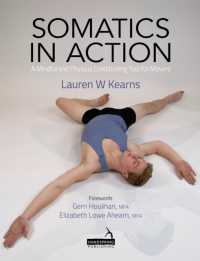- ホーム
- > 洋書
- > 英文書
- > Literary Criticism
Full Description
Blake's unique pronouncements on spirituality and embodiment, revolutionary politics, sexuality and genius, as well as on textual and artistic reproduction, were formulated in opposition to the pre-Darwinian theories of evolution and self-organisation emerging over the course of the long eighteenth century. Over the last two decades, literary critics have uncovered the many ways in which discoveries in the life sciences led the Romantics to increasingly understand art and life in terms of matter's vibrant powers of self-organisation. Here, however, Tara Lee shows how Blake was influenced by a preformationist paradigm that privileged the unique kernel of identity in each being over material processes of change and development. Readers will leave this book with a greater appreciation for how Blake's works were in intimate dialogue with a range of intellectual discourses - political, theological, poetic, aesthetic - that were shaped by vibrant debates about embodiment and organic form.
Contents
Introduction: redefining life with William Blake; 1. 'Living form is eternal existence': Blake and romantic biology; 2. 'It is raised/a spiritual body': Blake and the preformationist sciences of the soul; 3. 'Intelligent, organiz'd': Blake and the French revolution; 4. '[E]mbryon nerves': manuscript autopoiesis and materialist psychology in the four Zoas; 5. 'From sires to sons, unknown to sex': gender, genius, and the evolution of sex in Milton; 6. '[E]mbodied and organized in solid marble': Blake's critique of neoclassical organicism; Conclusion: Blake and the (Post)human; Bibliography; Primary sources; Secondary sources; Index.





